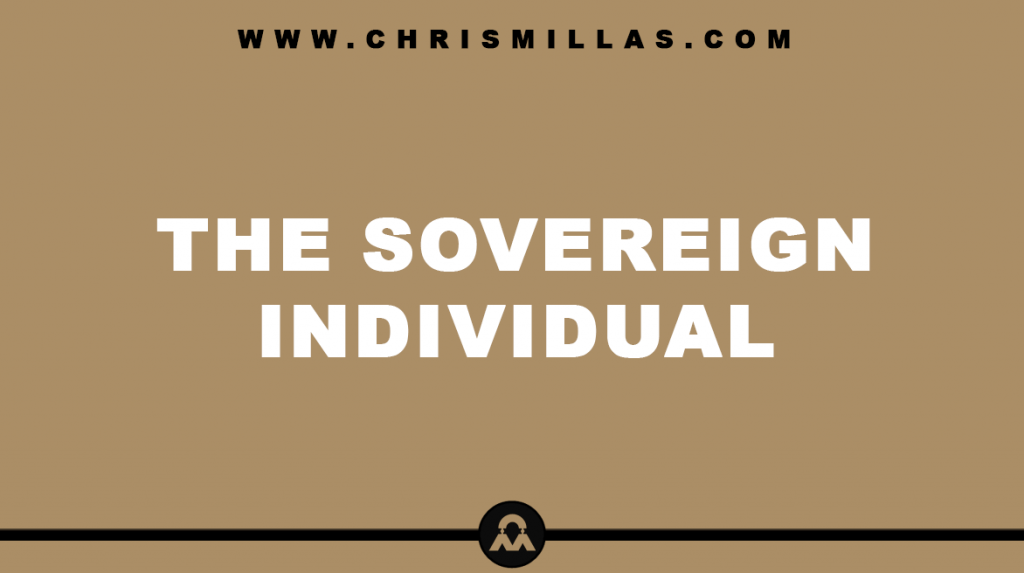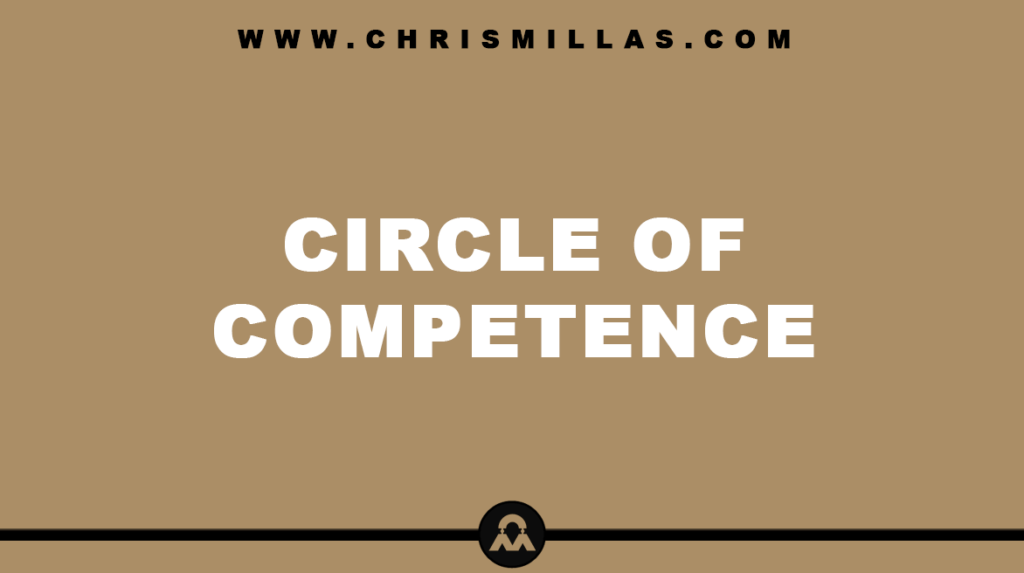In this post, we’ll use the book The Sovereign Individual written by authors James Dale Davidson and Lord William Reed-Mogg to explore the history of mankind through the lens of violence and how we can use this information of the past to create a map of the future.
What Is The Sovereign Individual?
The Sovereign Individual is a book by James Dale Davidson and William Rees-Mogg that predicts the transformation of society due to the rise of digital technology.
In their book, the authors argue that individuals will gain unprecedented autonomy and power. This will diminish the role of nation-states and traditional institutions.
The book explores the economic, political and social implications of this shift. It envisions a future where personal sovereignty and self-reliance become paramount.
The Evolution Of Human Societies
Since the dawn of human history, there have been three major societies; hunter-gather societies, agricultural societies and industrial societies. According to James Dale Davidson and Lord William Reed-Mogg, the next stage of social organisation (which we are in the mist of now) is information societies.
Technological Drivers Of Change
Violence is a useful strategy for achieving desired outcomes ― specifically in influencing human behaviour. The logic of violence is determined by technology ― the cost of attack versus the cost of defense.
The Beginning Of The State’s Monopoly On Violence
The genesis of centralized governments arose simply as a natural monopoly on violence.
During the age of hunter-gatherer societies, mankind lived a very basic life. Tribes roamed around in bands of 100 or so people living pretty much hand-to-mouth.
However, the eventual move to settled agricultural societies resulted in the emergence of private property ― since no-one would be content growing crops only for someone else to come along and harvest what they had produced ― and surplus ― the ability to make excess produce.
Private property and surplus introduced the ability to steal which made investments in weaponry profitable. The result was theft ― much of it highly organised. This created the need for protection which in turn created the need for a protector. As a result, specific actors emerged as a protection service and ultimately attained a monopoly on violence.
Violence can be defined as coercion ― the ability to influence human behaviour using force of threat. For example, we pay taxes so we don’t go to jail. However, history shows that monopolies on violence tend to abuse their monopolistic privileges on society.
To this day, this process continues to play out on different scales as a result of different technologies. In the words of Mark Twain: “History doesn’t repeat itself, it rhymes.” In modern society, the supreme specialist in violence over a given territory is what we know to be government.
The history of mankind is the history of using violence to accumulate property.
The End Of The State’s Monopoly On Violence
Technology is creating a revolution in the exercise of power. The same way the printing press destroyed the Church’s monopoly on information, technology is destroying the government’s monopoly on violence.
For the first time in history, information technology is allowing for the creation and protection of assets that lie entirely outside the realm of any individual government’s territorial monopoly on violence. In other words, our information society is increasing the power of individuals and decreasing the power of government.
One of the major developments that is contributing dramatically to the rise of sovereignty is the cyber economy ― an economy based on electronic goods and services ― which completely transcends physical borders. As borders disappear, the concept of taxation, which is the foundation of governments, becomes increasingly fragile. The rise of the cyber economy will create The Sovereign Individual.
How Technology Has Shaped Violence
Over the course of human history, there have been 5 primary technologies that have transformed the nature of the state’s monopoly on violence and also the defense of citizens.
The first was bronze and iron weapons which favoured the state. This is because they allowed for the formation and equipping of large, organized armies, giving states with access to such resources a significant advantage in warfare and control over populations.
The second was gunpowder which favoured the state. This is because it provided a technological edge in siege and field warfare, enabling states to conquer and control larger territories with more effective and intimidating weaponry.
The third was firearms and artillery which favoured the state. This is because they further enhanced the firepower and reach of state militaries, diminishing the effectiveness of traditional forms of resistance and increasing the state’s capacity for territorial expansion and control.
The fourth was nuclear weapons which favoured the state. This is because they endowed certain them with the ultimate deterrent, the ability to inflict catastrophic damage, thus securing a high level of power and influence on global affairs, dissuading direct military confrontation.
The fifth is cyber technology which favours both state and non-state actors. This is because it offers tools for both offensive and defensive actions that can be carried out remotely, affordably and anonymously, thereby levelling the playing field.
The Dimensions Of Technology
History shows that technology has played by far the greatest role in determining the costs and rewards of projecting power and will likely continue to do so. Technology has several crucial dimensions.
Firstly, a balance between offense and defense. When offensive capabilities dominate, the ability to project power at a distance increases and governments tend to increase in size. When defensive capabilities are dominate, jurisdictions tend to fragment and governments tend to decrease in size.
Secondly, equality and the predominance of the infantry. When weapons are relatively cheap, they can be employed by many which tends to decentralise power and increase the military importance of infantry. When weapons are relatively expensive, they can be employed by few which tends to centralise power and decrease the military importance of infantry.
Thirdly, advantages and disadvantages of scale in violence. When there are increasing returns to violence, governments tend to increase in size. When there are decreasing returns to violence, governments tend to decrease in size.
Fourthly, economies of scale in production. When economies of scale in production are significant, governments tend to increase in size. When economies of scale in production are insignificant, governments tend to decrease in size.
Fifthly, dispersal of technology. When key technologies are widely dispersed, governments tend to decrease in size. When key technologies aren’t widely dispersed, governments tend to increase in size.
Future Predictions – The Sovereign Individual
In their book The Sovereign Individual, the authors make a few predictions.
Firstly, because institutions that have employed force and a local advantage to redistribute income are losing power, income inequality within jurisdictions will rise. Global competition will increase the income earned by the most talented individuals in each field, wherever they live. As a result, the marginal value generated by superior performance in a global market will be huge.
Secondly, with the invention of the internet, individuals have the ability to work anywhere at anytime. This means that geographical location becomes increasingly less relevant in relation to earning income. As a result, citizens will have the power to chose districts that most align with their own personal values, wants and needs.
Thirdly, encryption technology creates impenetrable defense and allows individuals to secure property that is immune to confiscation or coercion at near-zero cost. As a result, cryptocurrencies allow people to opt out of unfair tax regimes and overly inflationary regimes by enabling them to save and trade in alternative currencies, such as Bitcoin.
Fourthly, for many of the reasons states above, governments will be obliged by the force of competition to set policies to appeal to those of their customers (citizens) who contribute more to economic well-being instead of those who contribute less or those who have a negative impact and charging no more than they are worth. Governments that charge too much ― via taxes ― will drive away their best citizens. Competition between jurisdictions will result in a similar outcome to that observed in other sectors of life ― improved customer satisfaction.
Fifthly, citizens who thrive in the global society will identify themselves globally. They will make political, social and economic decisions based not on national identity. Instead, they will make them based on how those choices relate to themselves directly.
Summary (TL;DR)
Agricultural society completely transformed the direction of humanity. Private property and surplus introduced the element of crime. Crime created the need for protection. Protection created the need for a protector which ultimately gave rise to specialisation in violence.
Violence is a useful strategy for achieving desired outcomes. The logic of violence is determined by technology.
However, modern technology is creating a revolution in the exercise of power that will destroy the government’s monopoly on violence. The balance of powers will transition from government to citizens, setting the path for The Sovereign Individual.







